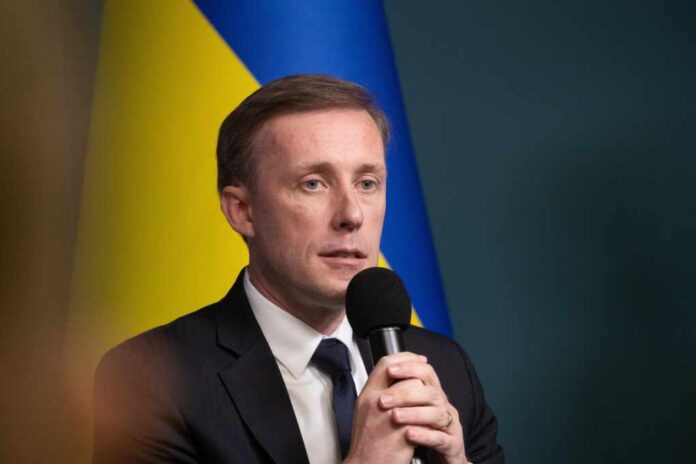
The Biden administration this week reportedly prepared a request to Congress, asking for a staggering $100 billion in supplemental foreign aid funding. The package is directed at both Israel, following a series of deadly attacks initiated by Hamas earlier this month, and Ukraine, which is continually embroiled in conflict with Russia. However, this massive foreign aid proposal comes when pressing domestic concerns, particularly our ongoing border situation, appear to be pushed to the sidelines.
As voiced by Jake Sullivan, the national security adviser, the Biden administration’s justification emphasized that the President is looking at a package of funding for Ukraine and Israel. Sullivan stated on CBS’s “Face the Nation,” “The President has made clear that he is going to go to Congress with a package of funding for Ukraine as well as continued support for Israel.”
Here we go @POTUS again trying to break the US.
Biden Seeks $100B in Ukraine, Israel Aid From Congress https://t.co/rO7JzOeA28 via @OANN
— Broski (@LittleBroski2) October 18, 2023
Bipartisan support for Israel is evident. The Congress’s willingness to act swiftly after Hamas’s attacks highlights this. However, the same cannot be said for aid directed toward Ukraine. As some House Republicans have expressed, there is palpable skepticism when it comes to combining support for Israel with that of Ukraine, given that Ukraine’s conflict doesn’t resonate with the same level of backing.
Senate Minority Leader Mitch McConnell (R-KY) said on Tuesday he supported the administration’s initiative of bundling the aid, emphasizing the interconnected challenges posed by nations such as North Korea, Iran, Russia and China against the democratic world. McConnell stated, “This is all interconnected. You’ve got the North Koreans, the Iranians, the Russians and the Chinese, sort of, on the same side against the democratic world.” Yet, he also pointed out the need for the aid to address the U.S. border concerns effectively.
While the Biden administration previously requested $4 billion for the southern border, it was left out of the government funding bill ratified by Congress. This omission leads many to question why funding external conflicts is far easier than addressing ongoing domestic crises directly harming American citizens.
Let's examine costs
– Post 9/11 wars: $8 TRILLION
– Ukraine war so far: $112 BILLION
– Illegals: $182 BILLION per year
– Incoming: $100B Ukraine + Israel package
– No border fundingHow about we stop being the world's piggy bank and take care of our own country. pic.twitter.com/GzP9HdFRAO
— Lowkey Rey 2.0 (@AtlRey) October 17, 2023
Biden wants $100B package that includes aid to Israel and Ukraine. FOR 12 MONTHS. They also want aid for Taiwan. Yellen how many wars can we afford???
What about our Border? What about the USA? Biden is a moron.— Peter (@EPLPeter) October 17, 2023
Meanwhile, Sen. Lindsey Graham’s (R-SC) warning on NBC’s “Meet the Press” comes across as a stark reminder of the priorities of many establishment politicians, asserting, “If you strip out Ukrainian aid, Russia will keep going, there will eventually be a war between NATO and Russia, and it will be a green light to China to invade Taiwan.”
While international aid is important when it serves to protect actual American interests internationally, it should not overshadow pressing domestic concerns. With the House currently in legislative limbo, waiting for a new speaker after Rep. Kevin McCarthy’s (R-CA) removal from the leadership position, this might be an opportune moment to introspect and reassess priorities.















